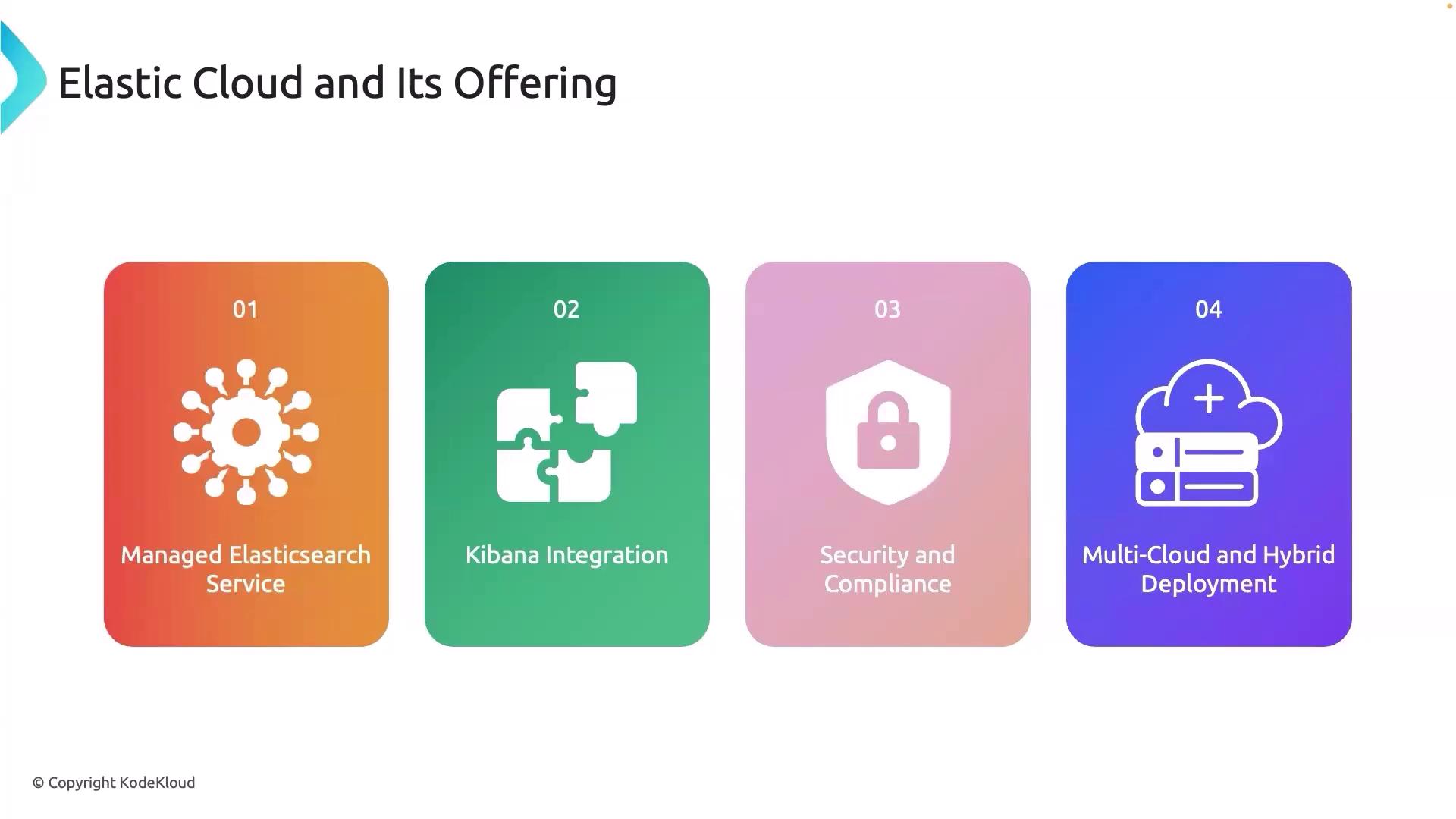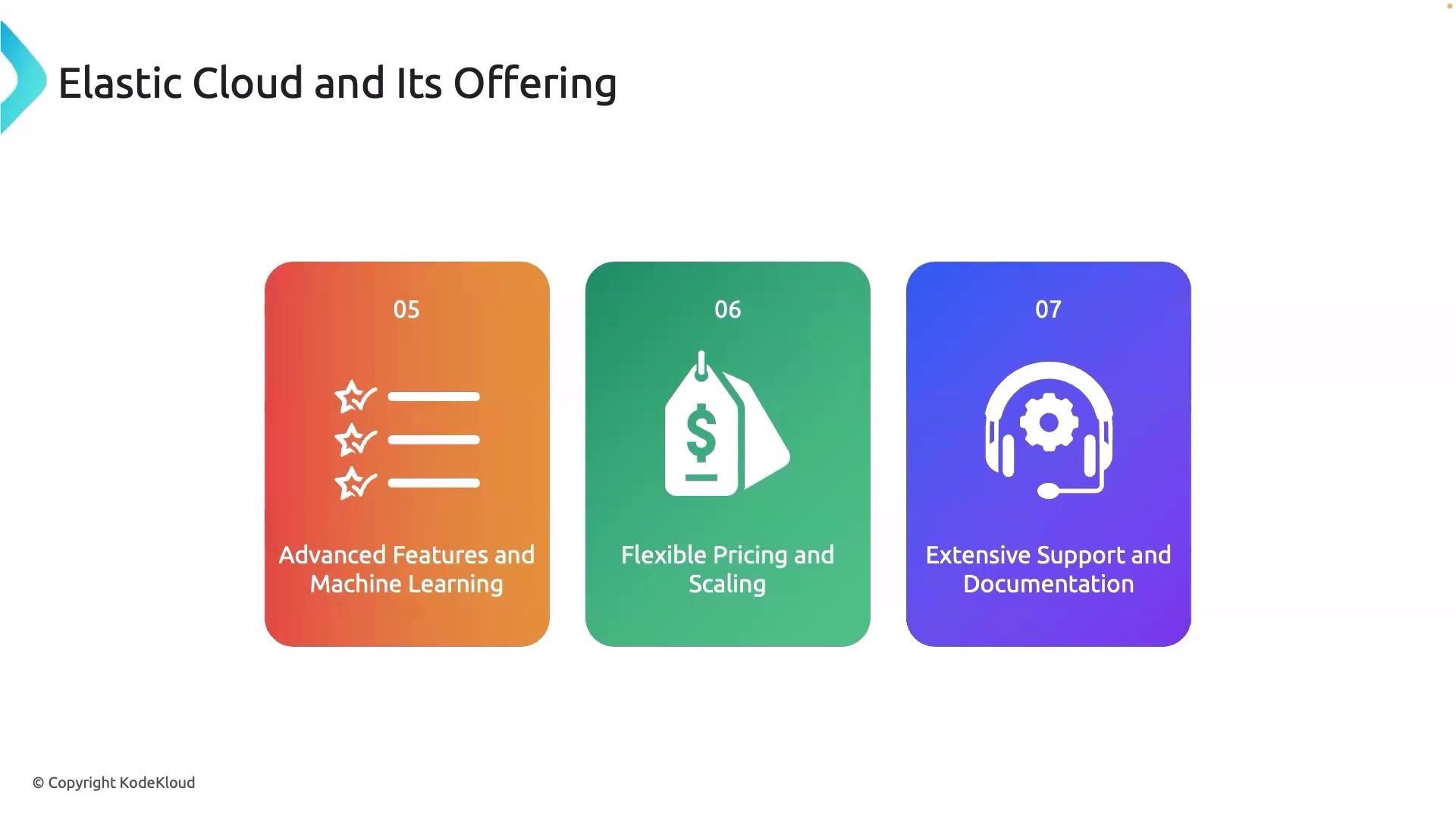EFK Stack: Enterprise-Grade Logging and Monitoring
Elastic Cloud
Elastic Cloud and its Offering
Hello and welcome back!
In this article, we explore the key benefits of using Elastic Cloud within your organization. Elastic Cloud provides a fully managed Elastic service—meaning that the heavy lifting associated with running and maintaining Elasticsearch clusters (such as automated backups, updates, scaling, and monitoring) is entirely handled for you.
For example, you can effortlessly set up a multi-node Elasticsearch cluster with high availability across various regions without concerning yourself with the underlying infrastructure. Additionally, Elastic Cloud offers seamless integration with Kibana, a powerful data visualization and exploration tool. With Kibana, you can create interactive dashboards, visualize real-time data, and perform advanced analyses directly with your Elasticsearch data.
Key Benefits
- Fully managed Elasticsearch clusters
- Seamless Kibana integration for data visualization and analysis
- Automated backups, updates, scaling, and monitoring
Security is a top priority in Elastic Cloud. The platform includes robust features like rule-based access control, encryption both at rest and in transit, and strict adherence to industry standards such as GDPR and HIPAA. These measures ensure that your data remains secure and compliant with various regulatory requirements.
Elastic Cloud also supports deployment across multiple cloud providers, including AWS, Google Cloud, and Microsoft Azure. This flexibility enables you to align your Elasticsearch clusters with your business needs, whether they are on-premises, cloud-based, or hybrid deployments.

Beyond its core services, Elastic Cloud grants access to advanced features and machine learning capabilities—such as anomaly detection, forecasting, and natural language processing. For instance, built-in machine learning integrations can automatically detect unusual patterns in your log data, allowing you to identify potential security threats or operational issues before they escalate.
Elastic Cloud offers a range of flexible pricing models tailored to your usage patterns. With a pay-as-you-go structure, you only pay for the resources you utilize, making cost management straightforward as you scale your infrastructure.
Support and Documentation
Elastic Cloud provides extensive documentation and support to help you maximize your Elasticsearch deployments. Its comprehensive resource library ensures that you have access to the latest guides and best practices.

In summary, Elastic Cloud offers a comprehensive suite of tools and services that simplify the deployment, management, and scaling of Elasticsearch. Its managed services, robust security features, advanced machine learning capabilities, and flexible pricing make it an ideal solution for modern enterprises. By leveraging these offerings, you can enhance your ability to manage and analyze data effectively.
Many organizations and startups are opting for Elastic Cloud because it enables them to deploy in the Elastic Cloud environment or on their preferred cloud provider—whether that is AWS, Google Cloud, or Azure—while still reaping the benefits of Elastic Cloud’s extensive features.
Now that you have an in-depth understanding of Elastic Cloud and its offerings, it’s time to dive into some hands-on activities. Experience firsthand how Elastic Cloud can simplify your operations compared to setting up and maintaining the entire Elastic Stack on your own.
Thank you for reading, and we look forward to exploring more in the next article.
Watch Video
Watch video content